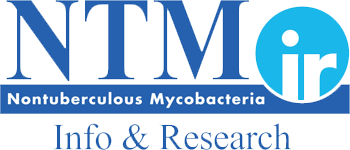Pulmonary nontuberculous mycobacterial (NTM) infections pose a significant challenge in respiratory medicine. While antibiotic therapy remains the cornerstone of treatment, surgical intervention is sometimes necessary to achieve better clinical outcomes. In this blog, we’ll explore the role of surgery in managing pulmonary NTM infections, criteria for patient selection, surgical techniques, and recovery expectations.
Why Surgery?
The decision to proceed with surgery typically arises in patients for whom medical therapy alone proves insufficient. Antibiotic resistance, localized disease, persistent symptoms, or complications like hemoptysis (coughing up blood) may prompt the doctor and patient to consider surgical intervention. Surgical resection can remove infected tissue, reduce bacterial load, and alleviate complications, thus improving quality of life.
Patient Selection for Surgical Treatment
Surgery is not suitable for every patient with pulmonary NTM. Here are key criteria for selecting candidates:
- Localized Disease: Surgery is most effective when the infection is confined to a specific area, such as a single lobe of the lung.
- Failed Medical Therapy: Patients who do not respond to prolonged antibiotic treatment may benefit from surgical options.
- Complications: Severe hemoptysis or recurrent infections can necessitate surgical intervention.
- Adequate Pulmonary Reserve: Patients must have sufficient lung function to tolerate the removal of affected tissue.
- General Health: Surgical candidates should be in overall good health to endure anesthesia and post-surgical recovery.
Common Surgical Techniques
The primary surgical procedure for treating pulmonary NTM infections is lung resection, which can include:
- Lobectomy: Removal of an entire lobe of the lung containing the infection.
- Segmentectomy: Resection of a smaller portion of the lung.
- Pneumonectomy: Complete removal of one lung, used in severe cases.
Advances in minimally invasive techniques, such as video-assisted thoracoscopic surgery (VATS), have made these procedures safer and reduced recovery time.
Recovery and Post-Surgical Care
Recovery from lung surgery requires careful monitoring and adherence to post-operative care plans. Here are some tips:
- Antibiotic Continuation: Patients often need ongoing antibiotic therapy to address any residual infection.
- Pulmonary Rehabilitation: Breathing exercises and physical therapy can enhance lung function.
- Monitoring: Regular follow-ups with imaging studies ensure that the infection has not recurred.
Outcomes and Challenges
Studies show that surgical intervention, when combined with medical therapy, can lead to improved outcomes in selected patients. However, challenges such as perioperative complications, recurrence of infection, and the need for lifelong antibiotic therapy underscore the importance of a multidisciplinary approach involving pulmonologists, infectious disease specialists, thoracic surgeons, and other specialists that maybe needed at various times.
Conclusion
Surgery plays a crucial role in the comprehensive management of pulmonary NTM infections, particularly for patients who fail medical therapy or experience severe complications. With advancements in surgical techniques and post-operative care, more patients can achieve favorable outcomes. If you or a loved one is navigating treatment for pulmonary NTM, consult with a specialized healthcare team to explore all options.
References
- Understanding nontuberculous mycobacterial lung disease: Its diagnosis and management.
- Pulmonary diseases caused by nontuberculous mycobacteria.
- Treatment of pulmonary nontuberculous mycobacterial disease: Official ATS/ERS/ESCMID/IDSA clinical practice guideline.
- Environmental sources of nontuberculous mycobacteria. Clinical Chest Medicine,
- Outcomes of adjunctive surgery for nontuberculous mycobacterial pulmonary disease.
